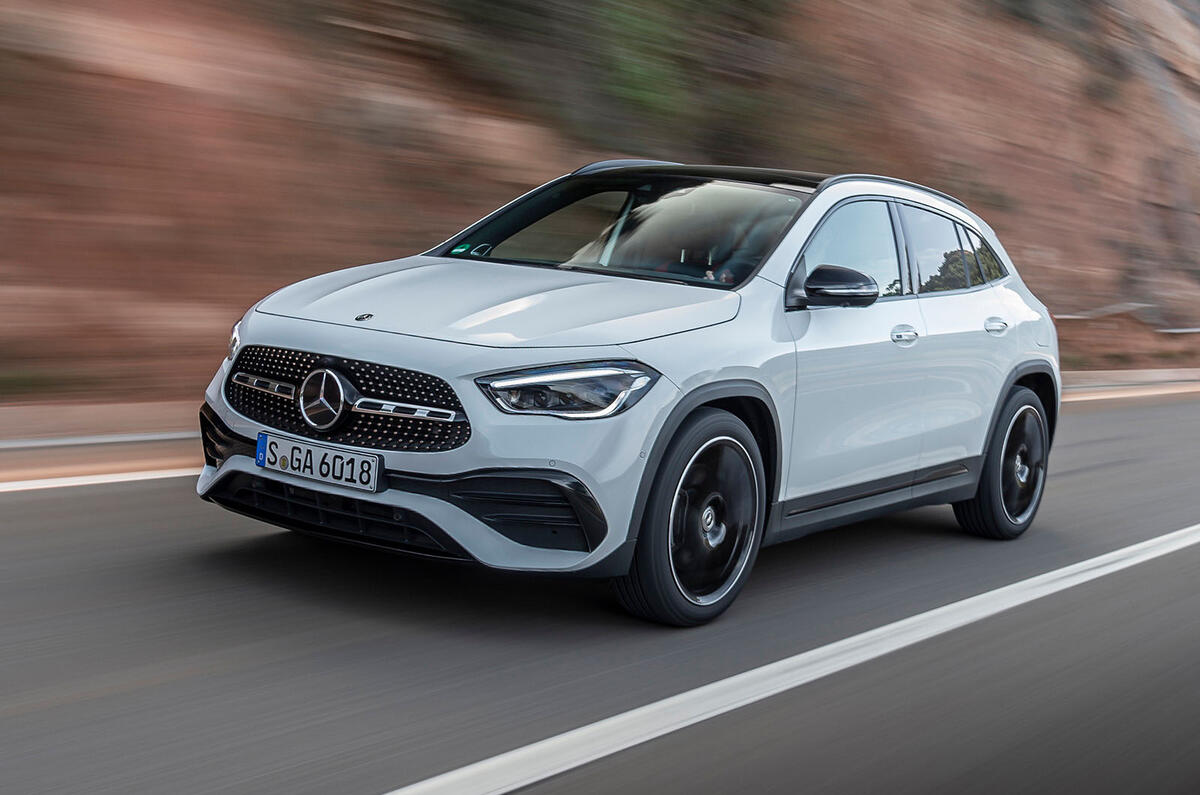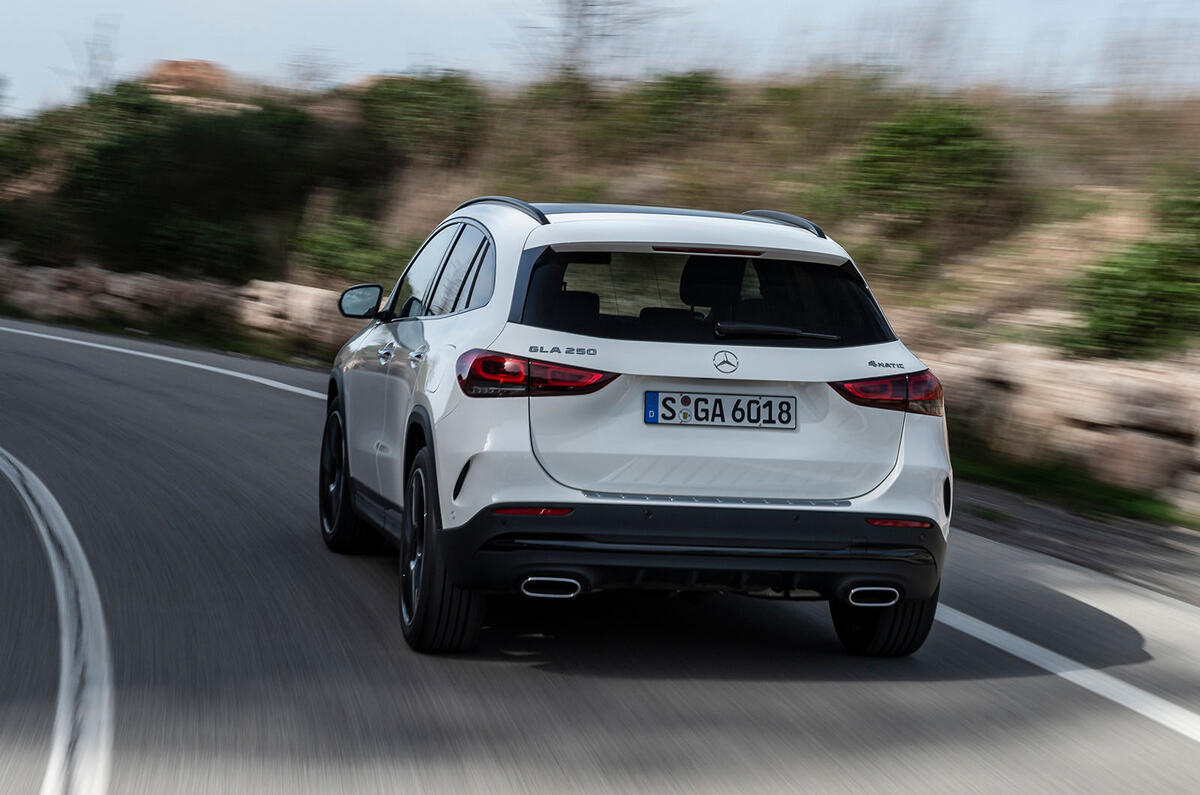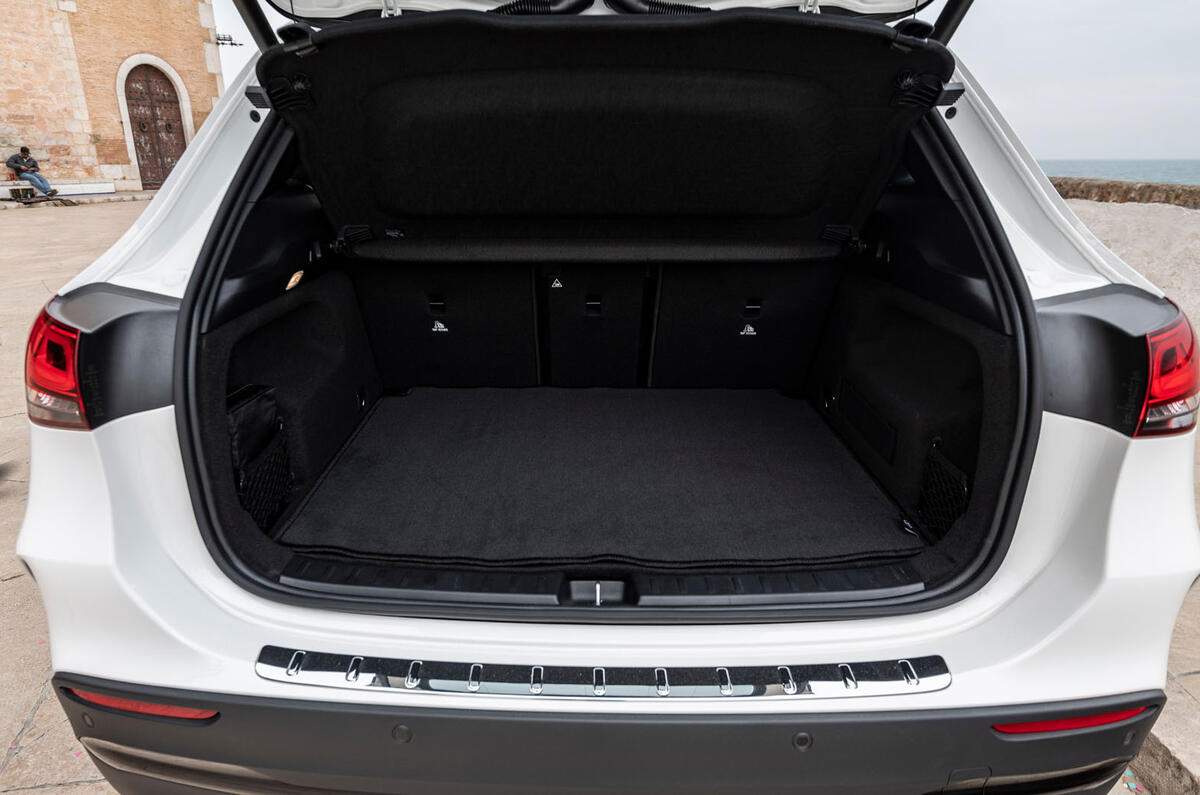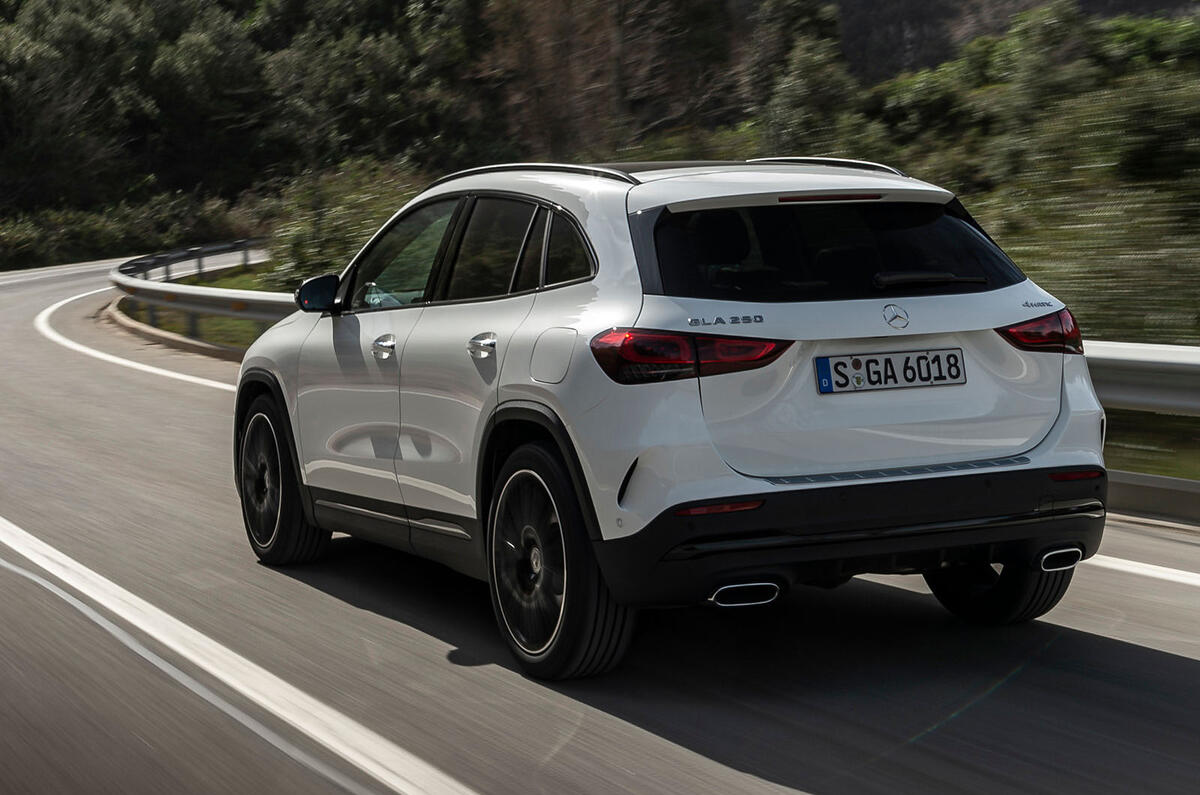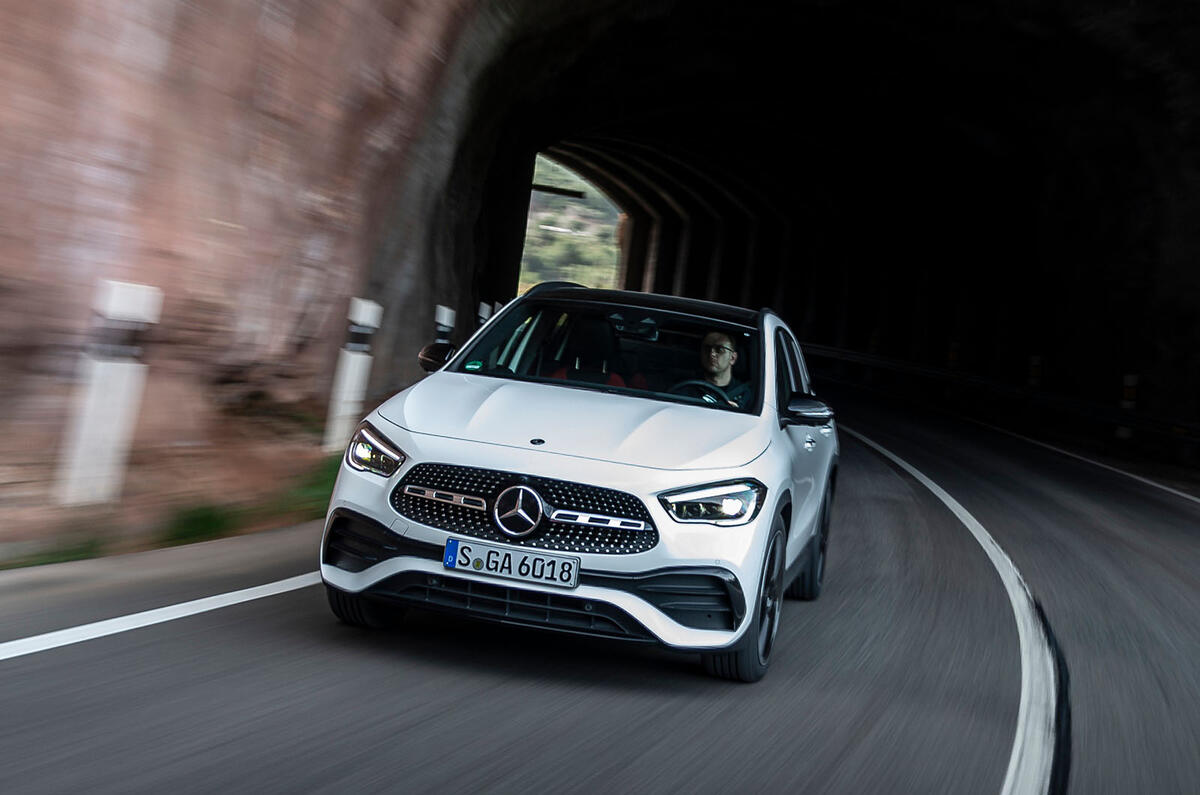The original Mercedes GLA of 2014-2020 was an undoubted success from its launch in 2014, with sales that touched the one million mark worldwide. But with all the marketing nonsense that surrounded it stripped away, the high-riding hatchback was in essence not much more than a rebodied version of the third-generation Mercedes A-Class of 2013-2018, and the claim to it being a genuine crossover was somewhat empty in terms of pure function.
This new one is different – and all the better for it. Developed as part of an eight-strong Mercedes compact car line-up, it has been given the necessary design and engineering scope to evolve into a much more rounded and talented rival to the Audi Q2 and BMW X2.
While the mechanical similarities to its lower-riding sibling remain, a whole host of unique touches help not only to provide the second-generation GLA with a more standalone character but also to instil it with the inherent qualities to make it more appealing on many fronts. Before we get into the finer points of the way it drives, though, we should consider its altered form.
Styling is always subjective, so we’ll sidestep judgement on the new GLA’s bolder appearance. What you should know, however, is that its dimensions have changed: length has been reduced by 14mm to 4410mm, while width extends by 30mm to 1834mm and height is up by a considerable 104mm at 1611mm without the optional roof rails. By comparison, the Q2 measures 4191mm long, 1794mm wide and 1508mm high, while the BMW X2 stretches to a respective 4360mm, 1824mm and 1526mm.



